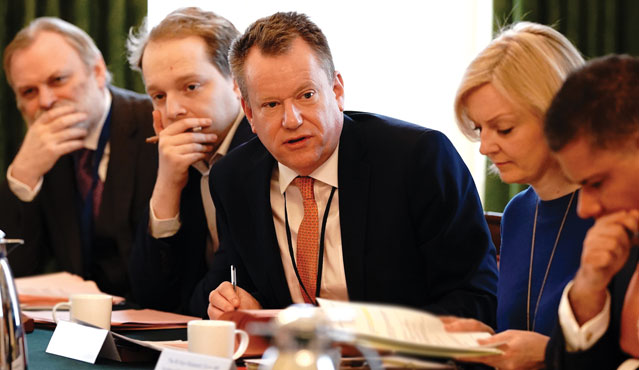A frosty reception

The elevation of David Frost MP as Minister for EU relations in Boris Johnson’s cabinet has led to increased tensions between the UK and the EU, including the likelihood of damaging legal action.
Frost’s hard-line approach as a Brexit negotiator was not well received by the EU, with the former Chair of the Scotch Whisky Association adopting a confrontational approach to negotiations and offering little flexibility in an attempt to extract a good deal for the UK.
His appointment, to replace Michael Gove, who had established a working relationship with European Commission Vice President Maroš Šefčovič, was greeted cautiously by the EU who are sceptical over Frost’s commitment to honour the agreement signed by the trading partners.
This scepticism is a significant factor in the EU’s announcement that it is to launch legal proceedings against the UK’s decision to unilaterally extend grace periods for the Irish Sea border, which the EU argues will be in breach of international law.
The stand-off is seen by some as an unnecessary deterioration in the relationship between the two blocs as they seek to secure a future trade deal. The tension emanates from the approach to the Northern Ireland Protocol.
The EU has accepted the need for working solutions to the implementation of the Protocol, the partial implementation of which has already proven disruptive. However, the UK argues that the EU has shown little by way of action to match its rhetoric.
Under the terms of the Protocol, Northern Ireland must follow EU customs rules for goods, and this created a sea border for goods coming from Great Britain into Northern Ireland. Political unionism in Northern Ireland is opposed to the Protocol and business has called for flexibilities in implementation to minimise disruption, with the first of the grace periods initially set to end in March.
In early March, Frost announced the extension of grace periods until October 2021, but did not consult the EU’s Šefčovič on the move. The UK attempted to play down the significance of their steps pointing to “operational reasons” and outlining their belief that the move was consistent in intentions to honour the Protocol. Frost followed up his decision with a newspaper article in which he warned the EU to “stop sulking”.
In response, Šefčovič said the move amounted to “a violation of the relevant substantive provisions” of the Protocol. EU member states have not only backed Šefčovič but influential members, including France, have been applying pressure for him to be firmer.
At the base of this all is an absence of trust. The UK’s latest manoeuvre is seen in Europe as a signal of things to come as it expects the UK to move away from its commitment to implement to Protocol. The UK’s argument that alignment with the EU rules on goods represents zero risk is not being accepted because of the recognition of the gap that would be created when and if the UK does decide to diverge.
Legal action will prove a potential test for post-Brexit relations but as the first test of the Protocol, only agreed at the end of 2020, relationships between Frost and Šefčovič will have to build from a very low base. The strength of the EU’s legal move and the UK’s approach to implementing new border checks on food imports from the European Union, will be decisive on relationships for the future.





